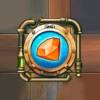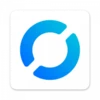
RustDesk Remote Desktop
- 5.0 RATINGS
- 3.00MB DOWNLOADS
- 4+ AGE
About this app
-
Name RustDesk Remote Desktop
-
Category GENERAL
-
Price Free
-
Safety 100% Safe
-
Version 1.3.2
-
Update Nov 26,2024
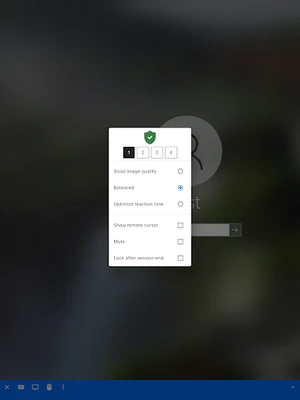
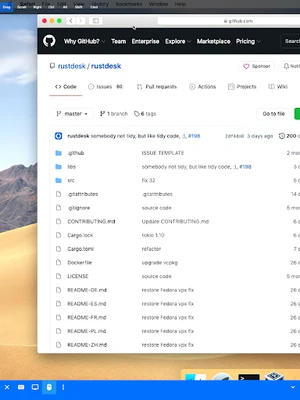
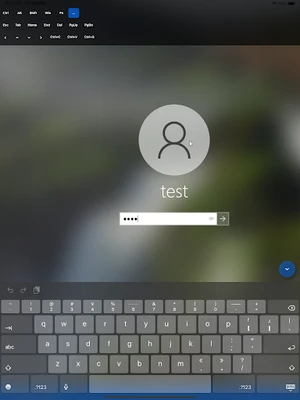
RustDesk Remote Desktop: An Emerging Star in Remote Collaboration
In the realm of remote work, remote desktop software has become increasingly significant in daily life and work. However, many commercial remote desktop solutions are not only pricey but also pose security risks. Against this backdrop, RustDesk, an open-source remote desktop application, is gaining traction among users due to its powerful features and ease of use.
RustDesk is built on the Rust programming language and the Electron framework. Rust is known for its efficiency, safety, and concurrency, while Electron allows developers to create cross-platform desktop applications using web technologies such as HTML, CSS, and JavaScript. This combination endows RustDesk with robust functionality while maintaining user-friendliness.
One of RustDesk's standout features is its cross-platform support. Whether you're using Windows, Linux, or macOS, RustDesk allows seamless switching between these operating systems, providing users with great convenience and eliminating concerns about device compatibility.
Security is paramount in remote desktop software. RustDesk employs secure encrypted transmission technology to ensure the safety of user data. During data transmission, RustDesk encrypts the data to prevent leakage or tampering.
In terms of performance, RustDesk also excels. Its high performance and low latency characteristics enable users to perform remote operations with almost imperceptible delay, significantly enhancing the user experience. Additionally, RustDesk supports multi-screen displays, which is a boon for users who need to operate multiple screens simultaneously. It also offers file transfer and clipboard sharing functionalities, further boosting remote collaboration efficiency.
Being open-source is another notable advantage of RustDesk. This means anyone can view its source code and improve or customize it. This open-source nature adds vitality to RustDesk's development and allows users to tailor it to their needs. Developers can add new features or improve existing ones based on their requirements, providing RustDesk with the flexibility to adapt to various scenarios and demands.
RustDesk aims to provide users with a self-hosted solution as an alternative to TeamViewer. The project primarily uses the Rust language but also involves other programming languages such as Dart, C++, C, Kotlin, and Python. Rust's high performance and security characteristics give RustDesk a significant edge in the remote desktop application field.
With continuous updates and improvements, RustDesk has not only become more functionally complete but has also significantly enhanced its performance and security. It now supports Flutter, making desktop and mobile development more convenient, and has integrated JavaScript in the Flutter Web client, enhancing Web-end functionality. It has also optimized video encoding and network connections, improving the smoothness and responsiveness of remote control. Furthermore, RustDesk has further strengthened encrypted communication and access control to ensure user data security and improved the user interface for a better user experience and operational convenience.
RustDesk is a small file that requires no prior installation or configuration. All you need to do is download the file and launch it by double-clicking the executable. It is semi-portable, meaning it doesn't need installation but will retain certain files (configuration TOML files and logs of previously established remote connections) in your system. Therefore, if needed, you can easily find logs and details about previous sessions in your system.
Upon opening RustDesk, you'll notice a left panel displaying the credentials for your device's remote access – an ID and a password. The ID is unique, but you can change the password by clicking the random generator for creating a new access code. To establish a new remote connection, you must install RustDesk on another PC and enter the unique ID and password of the machine you wish to access.
Currently, RustDesk operates on a single development-hosted server. If you wish, you can expand the service's functionality. The developers provide technical assistance on how to set up the server through guidance steps. With client configuration and advance payment, you can configure your own cloud using your unique server ID.
In conclusion, RustDesk, as an open-source remote desktop application, is revolutionizing the remote collaboration field with its powerful features, ease of use, and open-source nature. If you're looking for a functional and user-friendly remote desktop software, RustDesk is definitely worth considering.
